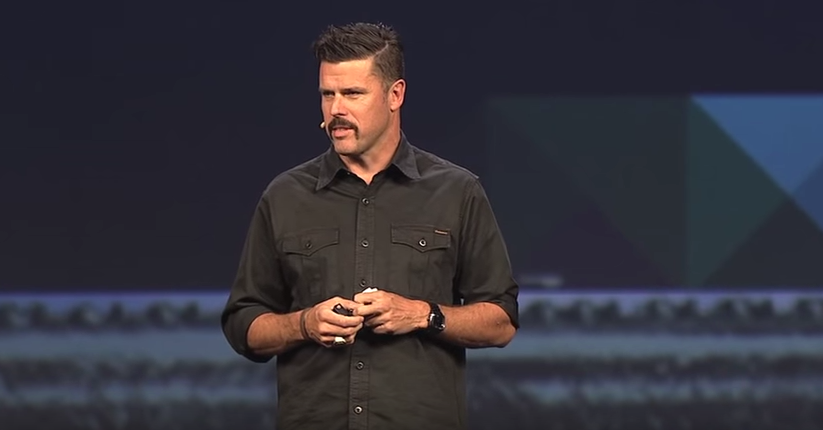Nov 21, 2019
MOvember is growing on us
It was 2003 and a group of mates in Melbourne, Australia, were trying to come up with a unique way to mark the November birthday of their friend, Travis Garone.
It took several pints in the pub before they hit on an answer: They would grow mustaches, or “Mos” as the Aussies call them.
Thirty of their friends joined them. And then something unexpected happened.
“The change in our appearance sparked conversations,” recalls Adam Garone, Travis’ brother.
So they made another decision.
“We thought we could make this a conversation for good, for positive change,” he said.

Inspired by the impact women were having on breast cancer with pink ribbons and fund-raising walks, they decided to link their mustaches to men’s health first targeting prostate cancer.
Travis developed the brand – a luxuriant dark mustache and the renaming of November – while Adam registered the trademarked the name and developed a website.
In 2004, Adam, Travis, and their buddy Luke Slattery, who also was present for the fateful pub decision, started fundraising. Almost 500 Mo Bros and Mo Sisters joined the cause that first year, contributing more than $40,000 to the Prostate Cancer Foundation of Australia
In Australia, prostate cancer is the most commonly diagnosed cancer in men. Approximately 3,500 men in the country die from the disease each year – more than the number of women who die of breast cancer.
Globally, prostate cancer is the second most common cancer in men and the fourth most common cancer overall. There were 1.3 million new cases in 2018.
Sixty percent of all cases are diagnosed in men over 65 years old, according to the Prostate Cancer Foundation. Over the last three years, Blue Cross Blue Shield of Massachusetts averaged more than 8,800 diagnosed cases of prostate cancer a year.
Little did they know their hirsute lips would launch a multinational charity.
“We never expected this global thing,” said Adam Garone, who served as CEO of the Movember Foundation for several years.
Making an impact with humor
Within five years, the Movember Foundation was officially launched, the movement had expanded to New Zealand, Canada, the U.S, the U.K. and Spain, more than 370,000 people had participated and more than $46 million had been raised, funding 152 men’s health projects across the globe.
Movember also expanded its focus to testicular cancer, a young man’s disease. According to Johns Hopkins Medicine, 8,000 to 10,000 men in the U.S. alone, the majority in their late 20s and early 30s, will develop testicular cancer each year. While the cure rate is high, about 400 men will die each year from the disease in the US. Blue Cross Blue Shield of Massachusetts averaged about 820 cases of testicular cancer annually over the last three years.
Early on, Movember leveraged a decidedly light-hearted approach to the causes it champions, from the catch phrase “what you grow can save a bro” to an early campaign that encouraged people to “kick prostate cancer in the arse.”
Even something as sensitive as testicular cancer is handled with a touch of impishness – men are encouraged to “know thy nuts” and conduct regular self-exams for cancer.
“A project like Movember that’s fun and brings attention to an issue reduces shame,” said Dr. Greg Harris, medical director for mental health at Blue Cross Blue Shield of Massachusetts. “People feel empowered to share.”
Men and mental health
It’s a strategy the organization continues to use in what may be its most challenging focus area – men’s mental health and suicide.
By 2030, Movember aims to reduce the rate of male suicide by 25%.
“I think it tends to be true that men aren’t as open about their physical and mental health,” Harris said.“Talking about feelings and depression is stigmatized. We’re taught to be tough, that talking about feelings is weak.”
Men are 3.5 times more likely to take their lives than women, Harris noted, and 70% of all suicides in the US are middle-aged men.
“Our message is it’s okay to say you’re not okay,” said Mark Hedstrom, executive director of U.S. Movember. “If you go back to our roots, it was a simple concept that connections, that talking is important.”

The organization urges guys to “be a man of more words,” when it comes to their mental health, providing resources for those who are struggling, and encouraging them reach out to male friends, family or colleagues who may be having a hard time emotionally.
Not surprising, the acronym for Movember’s peer-to-peer support guide has a man’s name, ALEC, which encourages men to:

“Men are problem-solvers who have to realize they can’t fix everything, and sometimes they need to talk to someone else, or just listen” said Hedstrom who said his organization is committed to addressing the issue. “As we grow, our footprint in mental health will grow – it’s a massive public health issue.”
An issue that’s getting the uniquely Movember tongue-in-check touch, teaching men how to “spot a bro who’s feeling low.”
Adam Garone recalled with a chuckle that “some called Movember the laziest charity in the world.” He will admit that growing a mustache takes no effort at all.
But since its inception Movember has raised $911 million for men’s health, with almost 73 cents of every dollar going to cancer research, prevention, education and other programs that improve clinical quality and quality of life for men with health issues, according to the organization.
And what is the real value of the Movember movement? If you mustache the question, they are making men’s health easier to talk about every day.

